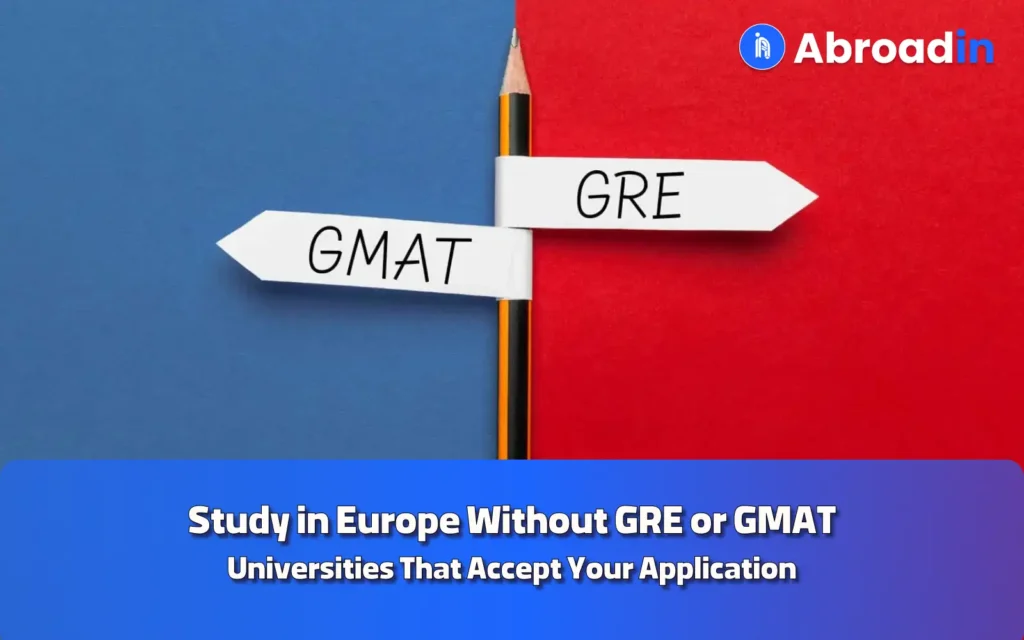

Finding Job in Europe after Graduation
Graduating from a higher education program in the European Union (EU) or European Economic Area (EEA) can open doors to exciting possibilities for international students.
These opportunities vary from country to country, offering non-EU/EEA graduates a chance to stay and explore their host country’s job market.
Let us check out some of these options for finding job in Europe after graduation:
- Temporary stay durations: Upon completing their studies, non-EU/EEA graduates often receive the opportunity to remain in their host country for a specified period. The duration of this stay varies widely across EU countries. For instance, Denmark extends this privilege for up to six months, while Germany offers an extended window of up to 18 months.
- Visa extensions and residence permits: The mechanisms for facilitating this transition also differ. This opportunity is seamlessly integrated into the student residence visa extension in some EU nations. In some other countries, non-EU/EEA graduates may need to obtain a separate temporary residence permit.
- Dedicated job search permits: Some EU countries take the concept a step further by introducing dedicated job search permits. These permits facilitate the pursuit of employment, streamlining the process for graduates eager to land their dream job in a foreign land.
if you don’t know how to find a study abroad consultant, read this below!👇🏼
https://abroadin.com/blog/study-abroad-consultant/
The EU Immigration Portal for Visa Information
Understanding the visa requirements is necessary to find the best way to study and work in the European Union.
The EU Immigration Portal is invaluable for navigating this intricate terrain providing comprehensive insights about living, working, and traveling in the EU.
This portal is your gateway to a wealth of information about working or studying in the EU. It is not merely a repository of rules and regulations but a platform that empowers you to make informed decisions about your future.
One of the standout features of this portal is its ability to enable users to compare the conditions for working across various EU Member States.
This functionality benefits individuals open to exploring many destinations within the EU but who want to make well-informed choices based on their specific needs and aspirations.
By providing transparent and accessible information, the mentioned portal aims to simplify the complex visa application process.
To access this information about finding job in Europe after graduation on the portal:
- Choose the country in which you want to study or work on the map on the homepage
- On the appeared list, click on the “Student.”
- On the new page, click on the “Rights.”
- Check under “Employment after studies” or “Change of status”.
Navigating National Procedures for Finding Job in Europe after Graduation
Once you have taken the initial steps towards finding job in Europe after graduation, your next step is understanding the national procedures.
Here is your roadmap on how to proceed and what to anticipate:
- Accessing vital information: Your first stop is to access detailed information regarding the specific procedures and associated deadlines.
- Connecting with the authorities: You must collaborate with the competent national authorities to progress. They will provide you with the necessary documents to complete as your bridge to realizing your EU aspirations.
- Staying abreast of regulatory changes: National regulations can change unexpectedly, making it imperative to stay vigilant. Rely on first-hand sources of information to ensure you are up to date.
- Managing timelines: Time management is crucial in this process. National procedures can often be lengthy and multifaceted. Give yourself enough time to navigate the bureaucracy, submit documents, and meet deadlines.
Also, you can find out about the best countries to work and study here👇🏼
https://abroadin.com/blog/work-and-study-abroad/
Extending Your Visa for Job Hunting
You may need to apply for a visa extension in many EU countries to explore job opportunities. It is a crucial phase in your post-graduation plans.
Here is what you need to know without checking unnecessary details:
- Visa extension essentials: In several EU Member States, securing a job-seeking visa extension is a prerequisite for your post-graduation job hunt. Timing is critical here. To avoid disruptions in your stay, ensure that you initiate this process well in advance, ideally, before your study residence permit expires. This proactive approach prevents last-minute stress and complications.
- Seeking guidance: Your higher education institution, where you completed your studies, can be a valuable resource in this step. They might offer guidance for the visa extension process, easing your transition into the next chapter of your life. Consider it as seeking advice from a trusted mentor; their expertise can prove invaluable.
- Stay informed: Remember that visa regulations can change, and you are responsible for staying informed about the latest updates. Regularly checking official sources and being proactive in understanding the conditions for visa extensions ensures a smoother process.
Securing a job offer is critical to unlocking longer-term work opportunities in the European Union. If you do this, you may become eligible to pursue options like the EU Blue Card or other extended residence permits under each country’s regulations.
These longer-term permits grant you the stability and flexibility to work and thrive in your chosen destination.
They signify a more profound commitment to your professional journey on European soil, ensuring that your career aspirations align seamlessly with the continent’s dynamic opportunities.
So, remember, your job offer is not just a doorway but also a pathway to your future in the European Union.

Some Skills Help You to Stay After Graduation
If you want to get a visa extension to stay and work in Europe after graduation, you need more than just documentation. The effort to get a visa extension often involves proving particular abilities that would appeal to immigration officials and companies.
Some skills help your chances of remaining in the destination country following graduation to be higher, including:
Language Proficiency
Mastering the native language, whether English, German, or French, can significantly increase your chances of landing a job and extending your visa.
Knowing the local language is a clear sign of your commitment to fitting into the local workforce and society. Knowing the local language can set you apart even if your language is widely spoken in the destination country.
Industry-Specific Knowledge
European companies often seek specialized technology, engineering, healthcare, or business knowledge.
Having relevant credentials and experience in these high-demand industries can significantly increase your chances of getting a job offer, which is crucial for visa extensions.
Keeping your skills updated with certificates or courses in your field is a smart strategy you can plan for years before graduation.
Cultural Awareness and Adaptability
These are significant factors in navigating a new European workplace. Being flexible and culturally sensitive can make you a highly valued candidate.
Companies appreciate candidates who understand and adapt to cultural differences, work well in diverse teams, and understand local business practices.
Demonstrating these soft skills during job interviews can increase your chances of getting hired and staying longer in Europe, significantly.
Communication and Networking Skills
Creating professional contacts via alumni associations, career fairs, or LinkedIn and Facebook could open doors to employment.
Making contacts, which results in employment opportunities, depends on solid personal and communication abilities.
Securing a job that supports your visa extension may depend critically on your capacity to build and maintain rapport with potential employers.
Critical Thinking and Problem-Solving Skills
Many European nations respect creativity and problem-solving capacity in IT, engineering, and research.
Demonstrating your ability to handle complex challenges and apply critical thinking will help you stand out in the job market and raise your chances of a visa extension.
Conclusion
The journey to work or study in the European Union is promising and complex. Navigating paths for finding job in Europe after graduation, visa procedures, extensions, and long-term opportunities requires diligence and adaptability.
With each EU Member State’s regulations, staying informed and seeking guidance is essential—Abroadin is here to help you toward a brighter future. You can check out our consulting service, which made many dreams come true!
FAQ
Popular countries include Germany, the Netherlands, and the UK due to their robust job markets and supportive visa policies.
Start the extension process early, consult with your university, and check specific country requirements on the EU Immigration Portal.
Opportunities vary but include positions in tech, engineering, business, and healthcare.
While not always necessary, knowing the local language can significantly improve your job prospects.
This depends on the country’s regulations. It’s important to check with local immigration authorities.


How useful was this post?
Click on a star to rate it!
Average rating 5 / 5. Vote count: 3
No votes so far! Be the first to rate this post.









No comment yet, add your voice below!